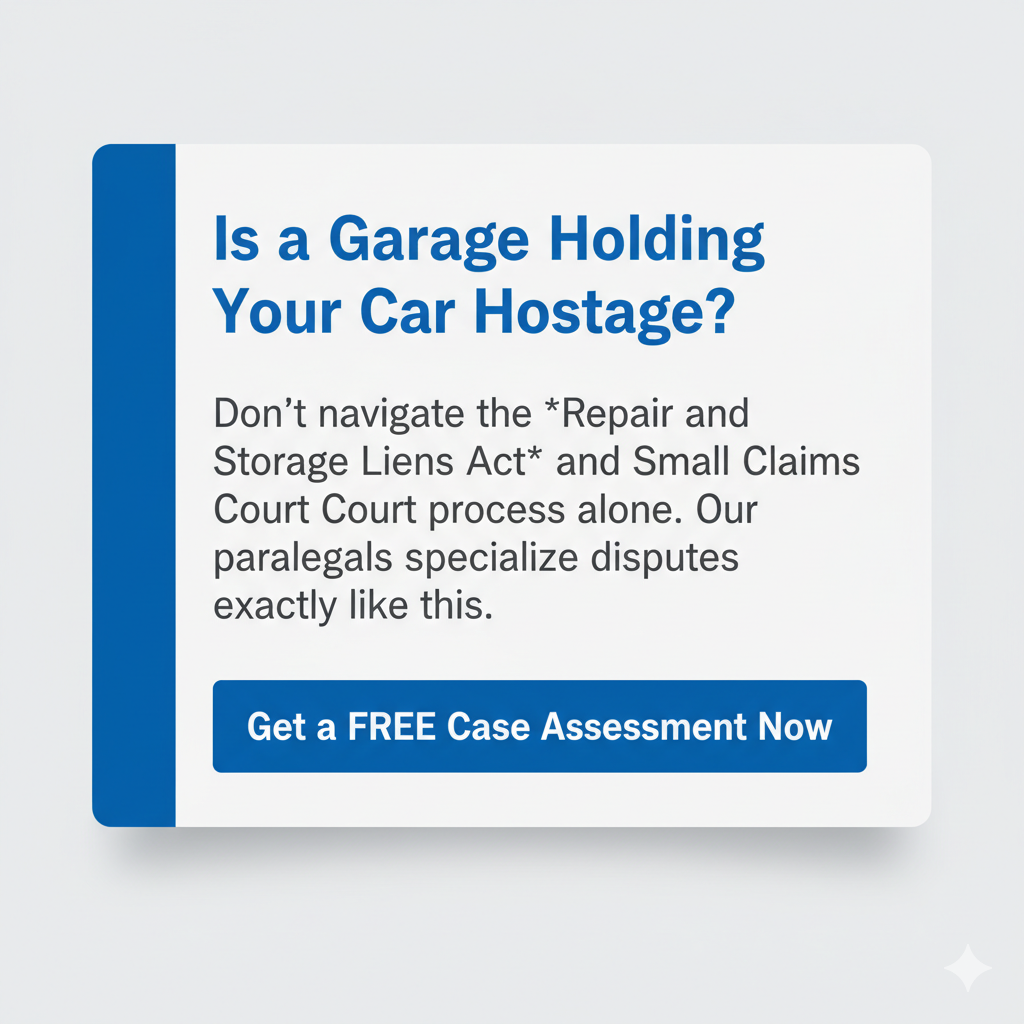The Garage Does Not Give Your Car Back.
Disputes regarding the repair of motor vehicles are widespread. It is hard to find someone who has not had an awkward conversation with a guy in blue denim at least once in a lifetime. Sometimes, it can be challenging to understand why the car continues to stall despite the payment being due. It is even more awkward when the guy refuses to release the vehicle until the full payment is made. Calling the police does no good. After listening to both parties, the police officer calmly explains that whatever is going on is not his jurisdiction. Instead, it is a civil dispute for the court to decide.
Repair and Storage Lien Act.
You are now facing two issues:
- Does the garage have the right to detain a car until full payment is provided? And,
- How can you get the car back without paying for the shoddy repair work?
The Repair and Storage Liens Act settles both of these issues. It is a provision of provincial legislation enacted to protect both repair service providers and their customers. Regarding the first question, the Act allows a repair shop to retain a car if the shop has completed the work but has not received payment. The Act refers to it as a possessory lien. However, the Act also provides a customer with specific means to retrieve a vehicle without direct payment to a repair shop.
How to Get the Car Using the Small Claims Court Process.
This is a procedure for the Small Claims Court.
Initial Certificate.
To begin, an aggrieved customer or paralegal must prepare an application to the Small Claims Court to obtain a so-called initial certificate. This application must include a deposit for the disputed amount payable to the Small Claims Court. Then, the car owner should deliver the certificate to the repair shop. Finally, the repair shop must release the car if there is no dispute about the deposit amount.
Final Certificate and Writ of Seizure.
However, if a dispute arises, the repair shop must file an objection with the court office. It must deliver its objection within three days after receiving the initial certificate. If it doesn’t file the objection but still refuses to release the car, the customer can obtain a writ of seizure. It is an unconditional order to release the vehicle. The customer can enforce the writ through a bailiff of the sheriff’s office. If the repair shop files an objection, the Small Claims Court office may issue a final certificate. However, the court will only do so upon the customer depositing the additional money requested by the repair shop. The final certificate obliges the repair shop to release the vehicle.
Claim For the Deposit and Defence.
The repair shop has ninety days to commence legal action after releasing the vehicle to claim the deposit held by the Small Claims Court. The customer can defend the action in the same way as in all other Small Claims Court matters. Then, a Small Claims Court judge will hear the matter at trial and determine whether the deposit must be paid to the repair shop, in whole or in part.
If the repair shop does not file a claim in ninety days, the deposit money must be returned to the client.







